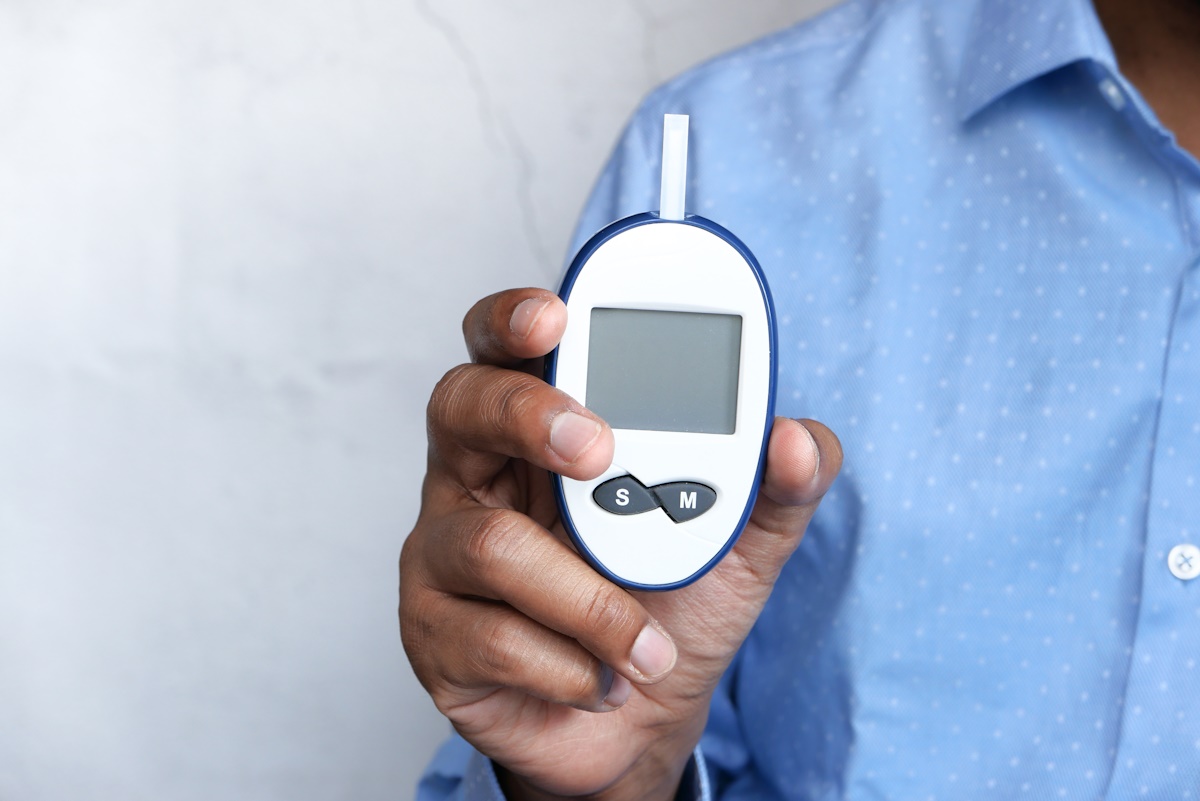How men can successfully manage their urological health while managing diabetes
Diabetes affects millions of Americans, and its impact extends beyond blood sugar levels to various aspects of health, including urological function. Here’s a comprehensive look at the link between diabetes and urological health and what you can do to manage it effectively:
Understanding Bladder Dysfunction
Bladder dysfunction includes problems that affect the lower urinary tract, such as urinary urgency, frequent urination, and incontinence. If you’ve been diagnosed with either type 1 or type 2 diabetes, you are at risk of developing bladder dysfunction issues. Why? Because over 50% of individuals with diabetes experience some form of bladder dysfunction, highlighting the strong correlation between the two conditions.
The Role of Diabetes in Incontinence
Men with diabetes are at a greater risk of experiencing stress incontinence, especially if their diabetes is not managed well. Nerve damage, obesity, and bladder infections, all of which are associated with diabetes, are frequently connected to bladder control issues leading to difficulties in urination and urinary incontinence. Incontinence can cause you to refrain from activities that you once enjoyed, including sexual activities. Chronic overfilling of the bladder can stretch and weaken bladder muscles, contributing to leakage.
Diabetes can also lead to urinary retention, where the bladder fails to empty completely, increasing the risk of infections. Urinary tract infections (UTIs) are more common and severe in individuals with diabetes, necessitating vigilance for symptoms like frequent urination, burning sensation, and cloudy urine.
Breaking the Cycle
Managing diabetes effectively is crucial in breaking the cycle of urinary complications. To reduce the risk of developing lower urinary tract issues, maintain target glucose levels, control blood pressure and cholesterol, stay physically active, and practice healthy lifestyle habits.
Top 10 Best Practices for Maintaining Bladder Health
Ensuring optimal bladder health is essential for overall well-being. Here are ten best practices to help you keep your bladder in top condition:
1. Exercise Regularly
Engage in daily physical activity to support overall health and bladder function. Regular exercise promotes proper digestion, helps maintain a healthy weight, and supports bladder control.2. Stay Hydrated: Stay hydrated by drinking sufficient water throughout the day. Aim for at least 8-12 cups of water daily and listen to your body’s signals.
2. Practice Proper Urination Habits:
Avoid holding urine for extended periods to prevent weakening of bladder muscles and reduce the risk of infection. Relax your body during urination to ensure complete emptying of the bladder and minimize the risk of urinary tract issues.
3. Adopt a Bladder-Friendly Diet:
Incorporate foods that promote bladder health, such as fiber-rich fruits and vegetables, lean proteins, and antioxidant-rich foods. Limit or avoid bladder irritants like alcohol, caffeine, and spicy foods to prevent urinary problems.
4. Maintain Good Hygiene:
Practice good hygiene habits, including wearing breathable clothing and proper wiping techniques after using the restroom. Urinating after sex reduces the risk of urinary tract infections by flushing out bacteria.
5. Do Pelvic Floor Exercises:
Strengthen your pelvic floor muscles with exercises like Kegels to improve bladder control and prevent urinary leakage. Incorporate pelvic floor exercises into your daily routine for optimal results.
6. Monitor Medication Side Effects
Be aware of medications that may affect bladder function, particularly those that act as depressants. It’s important to discuss any concerns regarding medication side effects with your healthcare provider. They can help you explore alternative options.
7. Manage Chronic Conditions:
Address underlying chronic conditions like diabetes, vascular diseases, and urinary tract infections promptly to minimize their impact on bladder health. Work closely with your healthcare team to manage these conditions effectively.
8. Quit Smoking:
Smoking can significantly increase the likelihood of developing bladder problems and bladder cancer, which can have serious and life-threatening consequences. It is highly recommended to quit smoking in order to maintain a healthy bladder and reduce the risk of developing cancer. Quitting smoking can significantly improve bladder health and reduce the risk of developing serious complications.
9. Communicate with Your Doctor:
Talk to your healthcare provider regularly about any bladder health concerns or symptoms. Your doctor can offer personalized advice, screenings, and treatments to support optimal bladder function.
To keep your bladder healthy and enhance your quality of life while also managing diabetes, follow these best practices and seek medical attention promptly when required.
Preventive Measures
Simple habits like proper hygiene (wiping front to back), maintaining a healthy weight, and quitting smoking can further mitigate the risk of urological complications in diabetes.
Consultation with Healthcare Providers
Every diabetic patient’s urological health needs are unique, emphasizing the importance of regular consultations with healthcare providers. Discussing risk factors and preventive strategies tailored to individual circumstances can help mitigate diabetes-related urological issues.
Seeking Professional Help
If experiencing symptoms or concerns related to diabetes and urological health, seeking prompt medical attention is crucial. Specialists like those at Norman Urology specialize in treating urinary tract disorders, including diabetes-related complications, and can provide personalized care and support.
In conclusion, understanding the link between diabetes and urological health is essential for effectively managing both conditions. By prioritizing diabetes management, adopting preventive measures, and seeking professional guidance, individuals can maintain optimal urological health despite the challenges posed by diabetes. Schedule an appointment with a urologist to address any concerns and improve your urological health.
Dr. David Samadi is the Director of Men’s Health and Urologic Oncology at St. Francis Hospital in Long Island. He’s a renowned and highly successful board certified Urologic Oncologist Expert and Robotic Surgeon in New York City, regarded as one of the leading prostate surgeons in the U.S., with a vast expertise in prostate cancer treatment and Robotic-Assisted Laparoscopic Prostatectomy. Dr. Samadi is a medical contributor to NewsMax TV and is also the author of The Ultimate MANual, Dr. Samadi’s Guide to Men’s Health and Wellness, available online both on Amazon and Barnes & Noble. Visit Dr. Samadi’s websites at robotic oncology and prostate cancer 911.

